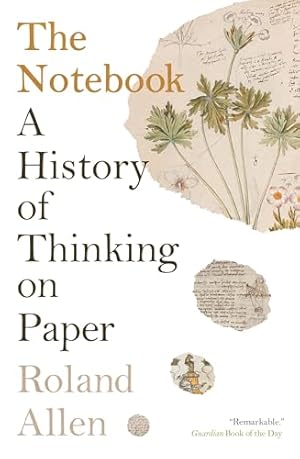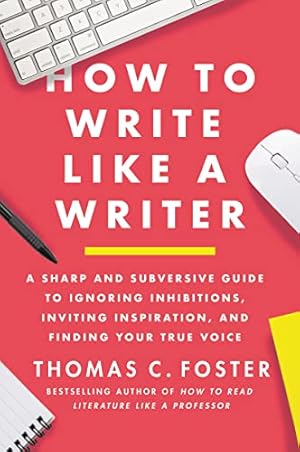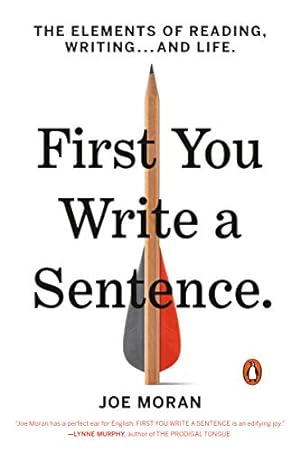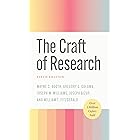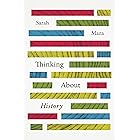Your Memberships & Subscriptions

Download the free Kindle app and start reading Kindle books instantly on your smartphone, tablet, or computer - no Kindle device required.
Read instantly on your browser with Kindle for Web.
Using your mobile phone camera - scan the code below and download the Kindle app.

Follow the authors
OK
Where Research Begins: Choosing a Research Project That Matters to You (and the World) Kindle Edition
Plenty of books tell you how to do research. This book helps you figure out WHAT to research in the first place, and why it matters.
The hardest part of research isn't answering a question. It's knowing what to do before you know what your question is. Where Research Begins tackles the two challenges every researcher faces with every new project: How do I find a compelling problem to investigate—one that truly matters to me, deeply and personally? How do I then design my research project so that the results will matter to anyone else?
This book will help you start your new research project the right way for you with a series of simple yet ingenious exercises. Written in a conversational style and packed with real-world examples, this easy-to-follow workbook offers an engaging guide to finding research inspiration within yourself, and in the broader world of ideas.
Read this book if you (or your students):
- have difficulty choosing a research topic
- know your topic, but are unsure how to turn it into a research project
- feel intimidated by or unqualified to do research
- worry that you’re asking the wrong questions about your research topic
- have plenty of good ideas, but aren’t sure which one to commit to
- feel like your research topic was imposed by someone else
- want to learn new ways to think about how to do research.
Under the expert guidance of award-winning researchers Thomas S. Mullaney and Christopher Rea, you will find yourself on the path to a compelling and meaningful research project, one that matters to you—and the world.
- ISBN-13978-0226801117
- PublisherThe University of Chicago Press
- Publication dateApril 1, 2022
- LanguageEnglish
- File size2.7 MB
Kindle E-Readers
- Kindle (10th Generation)
- Kindle Voyage
- All new Kindle paperwhite
- Kindle Oasis (10th Generation)
- Kindle Scribe (1st Generation)
- Kindle Oasis
- Kindle
- Kindle Paperwhite (5th Generation)
- Kindle Touch
- Kindle Oasis (9th Generation)
- All New Kindle E-reader
- All New Kindle E-reader (11th Generation)
- Kindle Paperwhite (10th Generation)
- Kindle Paperwhite
- Kindle Paperwhite (11th Generation)
Fire Tablets
Shop this series
See full series-
Next 3 for you$109.25
-
Next 5 for you$148.39
-
Next 10 for you$265.65
-
First 50$440.40
-
51-90$526.08
-
Next 3 for you$109.25
-
Next 5 for you$148.39
-
Next 10 for you$265.65
-
First 50$440.40
-
51-90$526.08
This option includes 3 books.
This option includes 5 books.
This option includes 10 books.
This option includes 19 books.
This option includes 39 books.
Customers also bought or read
- How to Write a Lot: A Practical Guide to Productive Academic Writing (APA LifeTools Series)
 Kindle Edition$19.95$19.95
Kindle Edition$19.95$19.95 - The Book Proposal Book: A Guide for Scholarly Authors (Skills for Scholars)
 Kindle Edition$13.17$13.17
Kindle Edition$13.17$13.17 - Thinking through Writing: A Guide to Becoming a Better Writer and Thinker (Skills for Scholars)
 Kindle Edition$14.72$14.72
Kindle Edition$14.72$14.72 - The Only Academic Phrasebook You'll Ever Need: 600 Examples of Academic Language
 Kindle Edition$5.99$5.99
Kindle Edition$5.99$5.99
Customers who bought this item also bought
From the Publisher
Plenty of books tell you how to do research. This book helps you figure out WHAT to research in the first place, and why it matters


Read this book if you (or your students):
- have difficulty choosing a research topic
- know your topic, but are unsure how to turn it into a research project

Read this book if you (or your students):
- feel intimidated by or unqualified to do research
- worry that you’re asking the wrong questions about your research topic

Read this book if you (or your students):
- have plenty of good ideas, but aren’t sure which one to commit to
- feel like your research topic was imposed by someone else

Read this book if you (or your students):
- want to learn new ways to think about how to do research
- and more!




This book is designed to be practical, first and foremost, providing specific and tested techniques to help you:
- choose a research topic;
- transform this topic into a set of concrete and compelling questions;
- identify the underlying problem motivating the questions you’re asking;
- deal with the assumptions, biases, and preconceived notions you might have about your topic;
- articulate the stakes involved in this problem and prioritize competing interests and concerns;
- approach and navigate the broader community of researchers who work on the same “topic” as you (that is, your “major” or “field”);
- discover and map out relevant researcher communities that exist beyond your field;
- find sources that will be useful to your research project;
- use the sources you find to refine your questions further (especially during the preliminary research stage);
- deal with mental roadblocks and keep up your momentum during the critical early stages of your project, when it’s easiest to feel lost;
- remain flexible, nimble, astute, and motivated as a researcher.
One of the many exercises you'll find inside:

Editorial Reviews
Review
—Claire Ma, PhD candidate in Political Science, the University of Pennsylvania
"I've never seen a book like this before... I hope I pick up a few tips, & I imagine this book will be so good for students."
—Grace Ting, Assistant Professor in Gender Studies, Hong Kong University
"An important topic that many academics and students need to pay far more attention to."
—Robert Campbell, Shannon School of Business, Cape Breton University
"Wonderfully teachable--I'll assign it in the Fall."
—Jeffrey Wasserstrom, Chancellor's Professor, UC Irvine
"This will take the place of the Eco book I usually assign."
—Alexander Bay, Associate Professor of History, Chapman University
"Mullaney and Rea's engaging volume can serve as an innovative and insightful primer for anyone about to embark on a research project. While this book's immediate target is undergraduate and inexperienced researchers, it is written in such a compelling way that seasoned scholars beginning a new project can benefit from and return to the book again and again. Its premise is exceedingly astute but often overlooked: that the research process at its inception needs to be self-centered; that the problem must fundamentally matter to you as a researcher; that the power of research begins with a personal connection to what you have determined to write about. Through exercises, writing prompts and questions, this book productively requires your active participation. It is a book that anyone teaching research methods or introduction to research or running an undergraduate research program needs to make use of and assign to their students."
—Harry J. Elam, Jr. President, Occidental College
"Mullaney and Rea have given us a little gem of a book, packed with smart, readable, compassionate guidance on the biggest question: how to start and what to do next. Read it, use it, read it again."
—William Germano, author of On Revision, Getting It Published, From Dissertation to Book, and (with Kit Nicholls) Syllabus
"This is a book we have all needed for a long time: a practical, helpful and reassuring guide for those facing the scary task of defining a research topic. With clarity, humor, and compassion, Mullaney and Rea provide a step by step guide to figuring out what interests you, why, and how to tackle the problem you have defined. Where Research Begins will prove an invaluable addition to research-centered courses as well as a guide for individual readers seeking to define their intellectual agenda."
—Sarah Maza, Northwestern University
"High-achieving students—those who undertake mentored or independent research, write undergraduate theses, apply for prestigious fellowships and awards, and complete graduate degrees—are often high achievers because they are good at following directions and pleasing others. But when does simply following the instructions result in transformative research? To be effective scholars, students need genuine curiosity and relevant research skills coupled with commitment to a problem. Compelling research becomes possible only once the problem in all its glorious complexities, implications, and associations has been identified.
In this engaging workbook, Mullaney and Rea guide their readers through a sequence of reflective exercises with the goal of defining a compelling and meaningful research problem. Equally valuable to students and to those who teach, advise, and mentor them, Where Research Begins isn't a book you read and then return to the shelf. Instead, it's a workbook that requires you to reflect and to document what you discover along the way. Engage with this book, and you will learn to assess your interests critically, differentiate between topics and questions wisely, understand sources dynamically, tap into networks productively, relate to your field astutely, and—ultimately—share your understandings of the process generously. We need more books of this sort: those that pull back the curtain on the intensely cerebral and iterative practice behind all research worth pursuing."
—Steven E. Gump, Associate Director of Fellowship Advising, Princeton University
A "super useful book... on how to design a project that works, including writing and stress-testing your research question. It was a real pleasure to read and useful for people of all levels."
—Pulitzer Prize-winning author and journalist, Ian Johnson
"'Where Research Begins' has finally arrived. Can't wait to read it with our graduate students."
—Ghassan Moazzin, Assistant Professor, Hong Kong Institute for the Humanities and Social Sciences (HKIHSS) and the University of Hong Kong
About the Author
Christopher Rea is professor of Asian studies at the University of British Columbia. His books include Chinese Film Classics, 1922–1949 and The Age of Irreverence: A New History of Laughter in China.
Product details
- ASIN : B09RJMWGXM
- Publisher : The University of Chicago Press (April 1, 2022)
- Publication date : April 1, 2022
- Language : English
- File size : 2.7 MB
- Text-to-Speech : Enabled
- Screen Reader : Supported
- Enhanced typesetting : Enabled
- X-Ray : Not Enabled
- Word Wise : Enabled
- Print length : 218 pages
- Best Sellers Rank: #249,726 in Kindle Store (See Top 100 in Kindle Store)
- #23 in Education Research (Kindle Store)
- #69 in Academic & Scholarly Writing
- #94 in Research Reference Books
- Customer Reviews:
About the authors

Thomas S. Mullaney is Professor of History at Stanford University, a Guggenheim Fellow, and the Kluge Chair in Technology and Society at the Library of Congress.
He is the author or lead editor of 7 books, including Where Research Begins: Choosing a Research Project that Matters to You (and the World), The Chinese Deathscape, The Chinese Typewriter (winner of the Fairbank prize), Your Computer is on Fire, Coming to Terms with the Nation: Ethnic Classification in Modern China, and the forthcoming The Chinese Computer—the first comprehensive history of Chinese-language computing.
His writings have appeared in dozens of outlets, including MIT Technology Review, The Boston Globe, Fast Company, South China Morning Post, the Journal of Asian Studies, Technology & Culture, Aeon, Foreign Affairs, and Foreign Policy, among others, and his work has been featured in the LA Times, The Atlantic, the BBC, and in invited lectures at Google, Microsoft, Adobe, and more.
He holds a PhD from Columbia University.

Christopher Rea is Professor of Chinese and former Director of the Centre for Chinese Research at the University of British Columbia.
Learn about his books and research at: https://asia.ubc.ca/profile/christopher-rea/
He is the creator of the Chinese Film Classics project, the world's largest collection of early Chinese films with English subtitles: chinesefilmclassics.org
Subscribe to his YouTube channel @ModernChineseCulturalStudies
BOOKS
"Where Research Begins," co-authored with Thomas S. Mullaney, is a guide for the researcher starting a new project. Editions forthcoming in Chinese, Japanese, Korean, and Thai.
"Chinese Film Classics, 1922-1949" is an essential guide to 14 Chinese cinematic masterworks of the black-and-white era. Chinese edition forthcoming.
"The Book of Swindles" is a 400-year-old Chinese collection of stories about fraud, and especially the perils faced by merchants traveling in the southern reaches of empire during the late Ming dynasty. A second volume is under contract with Columbia University Press.
"The Age of Irreverence" is a history of how China laughed its way into the modern age. It traces an unruly current in modern Chinese culture, following the stories of whimsical poets, vaudevillian entrepreneurs, renowned revilers, twee essayists, winking farceurs, and self-promoting jokesters--as well as the vocal opponents who tried to tame them. The Association of Asian Studies awarded "The Age of Irreverence" the Joseph Levenson Book Prize (Post-1900 China) in 2017. A Taiwan edition was published by Rye Field (Maitian) in 2018; a PRC edition is forthcoming from Peking University Press.
"The Business of Culture" is a study of cultural entrepreneurship that traces the rise of cultural personalities, tycoons, and collective cultural enterprises in China and Southeast Asia, from Tianjin and Shanghai to Hong Kong and Singapore.
"Humans, Beasts, and Ghosts," is a translated collection of stories and essays by Qian Zhongshu, twentieth-century China's paragon of urbane wit and acerbic satire.
"China's Literary Cosmopolitans" offers a comprehensive survey of the literary oeuvres of two of China's leading scholar-writers, Qian Zhongshu and Yang Jiang, and explains their contributions to the notion of literary cosmopolitanism.
"Imperfect Understanding: Intimate Portraits of Modern Chinese Celebrities" features fifty witty and idiosyncratic pen sketches, written in English by a Cambridge-educated author born in the Dutch East Indies, of Chinese cultural celebrities in the 1930s.
"China's Chaplin: Comic Stories and Farces by Xu Zhuodai" is a humor anthology that will answer the questions that have been keeping you up at night, such as: What is a father’s duty when he and his son are courting the same prostitute? And why should you never, never, never pull a hair from a horse’s tail?
Customer reviews
Customer Reviews, including Product Star Ratings help customers to learn more about the product and decide whether it is the right product for them.
To calculate the overall star rating and percentage breakdown by star, we don’t use a simple average. Instead, our system considers things like how recent a review is and if the reviewer bought the item on Amazon. It also analyzed reviews to verify trustworthiness.
Learn more how customers reviews work on AmazonReviews with images
Do you require to know where begins your (& others) research? Take a deep look into this book
Top reviews from the United States
There was a problem filtering reviews right now. Please try again later.
- Reviewed in the United States on May 30, 2022Please take a deep into this book of two great Doctors in Research and Reference in Methodology. Please consider that the book ordered from the publisher and the one you could order here use different papers. In the legals page they stated that the paper meets the requirements of ANSI/NISO Z39.48-1992 (permanence of paper) and the book printed by the university press looks like made of natural fibers, and gets a stylish yellow tone. The book you could order here is a print-on-demand and in the copy they’re a code and date and place of printing in the last page like in many books you could order here, and the paper looks more bright white, and the cover feels laminated and there’s also wrinkles that in the other one don’t have. The copy from the publisher doesn’t has a cover that feels laminated. The authors stated you need to underline and write, where you wish, in your book.
 5.0 out of 5 starsPlease take a deep into this book of two great Doctors in Research and Reference in Methodology. Please consider that the book ordered from the publisher and the one you could order here use different papers. In the legals page they stated that the paper meets the requirements of ANSI/NISO Z39.48-1992 (permanence of paper) and the book printed by the university press looks like made of natural fibers, and gets a stylish yellow tone. The book you could order here is a print-on-demand and in the copy they’re a code and date and place of printing in the last page like in many books you could order here, and the paper looks more bright white, and the cover feels laminated and there’s also wrinkles that in the other one don’t have. The copy from the publisher doesn’t has a cover that feels laminated. The authors stated you need to underline and write, where you wish, in your book.
5.0 out of 5 starsPlease take a deep into this book of two great Doctors in Research and Reference in Methodology. Please consider that the book ordered from the publisher and the one you could order here use different papers. In the legals page they stated that the paper meets the requirements of ANSI/NISO Z39.48-1992 (permanence of paper) and the book printed by the university press looks like made of natural fibers, and gets a stylish yellow tone. The book you could order here is a print-on-demand and in the copy they’re a code and date and place of printing in the last page like in many books you could order here, and the paper looks more bright white, and the cover feels laminated and there’s also wrinkles that in the other one don’t have. The copy from the publisher doesn’t has a cover that feels laminated. The authors stated you need to underline and write, where you wish, in your book.Do you require to know where begins your (& others) research? Take a deep look into this book
Reviewed in the United States on May 30, 2022
Images in this review
- Reviewed in the United States on August 20, 2022This is the single most helpful resource I have found when putting together my dissertation proposal. It's a handy workbook, meant to be written on and marked up (even the author gives you permission to do this). It's a book that will have you asking yourself question after question about why and what you want to do and committing them to paper. Tom Mullaney is a wonderful teacher and communicator and it shows. His years of experience working with students has really helped in writing this guide that is like an organizer for your thoughts and it sparks you to think deeper and get to the root of what you want to say. Indispensable!
 5.0 out of 5 starsThis is the single most helpful resource I have found when putting together my dissertation proposal. It's a handy workbook, meant to be written on and marked up (even the author gives you permission to do this). It's a book that will have you asking yourself question after question about why and what you want to do and committing them to paper. Tom Mullaney is a wonderful teacher and communicator and it shows. His years of experience working with students has really helped in writing this guide that is like an organizer for your thoughts and it sparks you to think deeper and get to the root of what you want to say. Indispensable!
5.0 out of 5 starsThis is the single most helpful resource I have found when putting together my dissertation proposal. It's a handy workbook, meant to be written on and marked up (even the author gives you permission to do this). It's a book that will have you asking yourself question after question about why and what you want to do and committing them to paper. Tom Mullaney is a wonderful teacher and communicator and it shows. His years of experience working with students has really helped in writing this guide that is like an organizer for your thoughts and it sparks you to think deeper and get to the root of what you want to say. Indispensable!If You are Thinking of Getting a PhD, You Need This Book!
Reviewed in the United States on August 20, 2022
Images in this review
- Reviewed in the United States on July 17, 2022As one of those odd ducks who loves research, I was so pleased to find a book that offered a new perspective on writing papers. Highly recommended for any academic library.
- Reviewed in the United States on August 29, 2023Quick shipping, good quality
- Reviewed in the United States on May 15, 2022Tom Mullaney is very good at what he does. As a professor of history at Stanford University and former Columbia PhD student, he's authored three really groundbreaking monographs on Chinese history ('The Chinese Typewriter' is a personal favorite), published numerous book chapters, co-edited various essay collections (like the recent 'Your Computer is on Fire'), and more. His former students regularly publish in some of the top journals in their fields, and Mullaney seems to be as genuinely talented as an educator as he is as a writer and researcher. On YouTube and TikTok, his "firstgenprof" videos aim to demystify the world of academia, and he's built a substantial following on each platform with students seem to really benefit from this kind of public scholarship.
In some sense, 'Where Research Begins' is also a work of public scholarship, one that does as much to document Mullaney's teaching practice as it does to educate readers on how to do research. The book grew out of Mullaney's time at Columbia alongside fellow student Christopher Rea (now a professor of Asian studies at the University of British Columbia), as they taught an undergraduate course on research methodology. Now decades later, the two have reconvened to externalize much of what they've learned after so many years of advisory experience, documenting the techniques they've learned to help students refine their research questions weeks and months before they ever sit down to write. The authors use the term "self-centered research" to describe this practice, providing various exercises that help students clarify their research interests by looking inward every step of the way. "[The] most important part of beginning a research project is finding your center," they write. "It's a process of discovery, analysis, and creation that can generate its own momentum and create a virtuous cycle of inspiration."
Mullaney and Rea are both trained as historians, and the book is largely focused on the preliminary steps necessary to produce archival or historiographic scholarship. While certainly beneficial for students of many different humanities disciplines, readers coming to this book for insights on ethnographic research, statistical analysis, or other kinds of scholarship across the humanities and social sciences may be better served by other resources specific to their methodologies. Mullaney and Rea are much less interested in producing an exhaustive account of how research is produced in every discipline, and more concerned with the preliminary thought that goes into choosing research questions that matter enough to each author to see their projects through to completion.
Anyone who's served in an academic advisory capacity knows how much the role can resemble a good therapy session, and the book is at its best when walking readers through the sounding board process to find clarity in their own research practices. The authors recall conversations they've had with students struggling to get away from the expectations of departmental disciplines, asking personal questions about why this research topic matters to the student, or how it can be adjusted to more closely reflect their interests The book takes readers through various exercises that explore what this looks like as the research practice progresses, looking inward after any forward progress to ask, "Does this research project still feel like me? Am I producing scholarship that I'm genuinely proud of and inspired to complete?"
While this book is incredibly beneficial for students of all ages, I think it also stands to help educators be better sounding boards for their students. Mullaney and Rea go to great lengths to document their process, but so often the real benefit lies in listening to students and providing them with the resources they need to succeed. 'Where Research Begins' is a really excellent introduction that's as helpful for early-career researchers looking to clarify their practices as it for the educators helping shape that scholarship along the way.
- Reviewed in the United States on August 13, 2022This book is a thorough investigation of the subjective process of choosing a research topic. It addresses mostly the psychological aspects of choosing a problem to investigate.
- Reviewed in the United States on August 3, 2022I LOVE THIS BOOK!
This guidance will undoubtedly be a wise choice if you are a student struggling with your thesis or projects! As two of the most outstanding and creative scholars in their fields of Asian studies, the authors give reliable instructions to beginners. Their career success is the most convincing proof of the validity of the research methodologies. You can see from every page how much effort and devotion the authors have invested in it during the past 18 years!
Reading it gives me more confidence when confronting various challenges, letting me know that my difficulties are actually common and there are ways out. I see the book not just as a helpful guide but also as a trustworthy friend on my learning path.
Compared to the other books on academic writing, I especially appreciate the "Try this now" column in each chapter, which offers detailed steps to follow and valuable tips. Through such practice, the reader would cultivate the habit of self-recording, leaving retrospective traces and seeing more clearly how much they have accomplished day by day! Moreover, the language of the manual is quite readable and accessible, which means that reading through it won't be a burden itself.
In brief, this manual is a pragmatic, workable, and patient guide for students to find their passion and begin independent studies. I appreciated that it gave me a practical starting point when I was adrift, and I hope it can help more people like me.
Top reviews from other countries
 Robert A. CampbellReviewed in Canada on April 13, 2022
Robert A. CampbellReviewed in Canada on April 13, 20225.0 out of 5 stars If you do research, you need this book
Written in a clear conversational style, this book is a must have for researchers of all kinds and at all levels. Much like a workbook, the book's strength and incredible value lie in the exercises, especially the Cereal Box Challenge. If you are a researcher, working through some of the exercises will greatly enhance your productivity and enjoyment, as well as increase the likelihood of producing something that people actually want to read and that makes a genuine contribution to the knowledge base in your area of interest. If you teach research methods, elements of this book need to be incorporated into your syllabus, not only to enhance student understanding and enjoyment in a course that many students dread, but also as a means of reducing some your own frustration with trying to develop effective and creative ways of accomplishing course objectives and increasing the quality of outcomes.
 maria lReviewed in Japan on May 15, 2023
maria lReviewed in Japan on May 15, 20235.0 out of 5 stars encourages steady writing and not being afraid to examine and follow one's interests and motivation
Two successful scholars share surprising insights on how to discover and follow one's research interests.
















